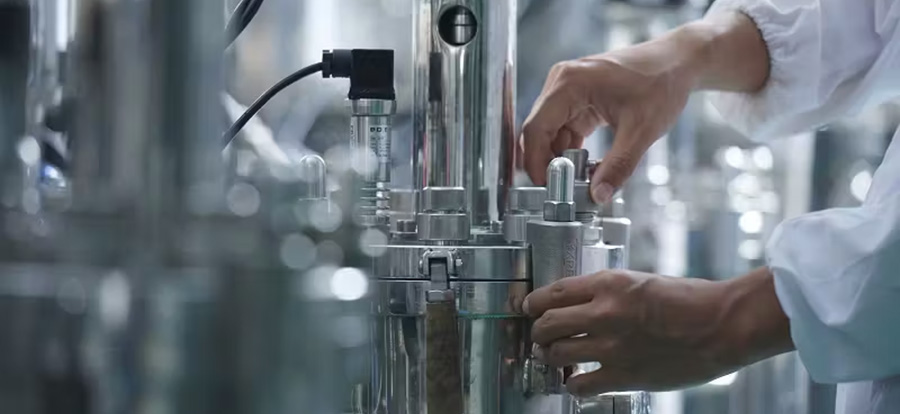Enabling continuous improvement in the chemical industry

In our recent webinar, industry experts Gian Paolo Di Salvo and Cheyenne Goeminne discuss how the process industry can leverage digital technologies to enable continuous improvement.
This blog will summarize some of the key points from the webinar, including the challenges faced by chemical manufacturers and how Siemens’ Opcenter portfolio for manufacturing operations management (MOM) can address them.
Key moments from the webinar
Transforming the process industry with digital innovation
Digital marketplaces are becoming increasingly important in the chemical industry, leading suppliers such as Covestro and BASF to open virtual storefronts on platforms such as Alibaba to better serve their customers with real-time data intelligence.
Nowadays, more than half of all B2B buyers are millennials, who have little hesitation with buying and selling online. As a demographic that also spends a considerable amount of time on product research, having a seamless online presence holds significant value in today’s market.
In the following clip, Gian Paolo explains how chemical manufacturers can transform their sales models to reach this digital audience.
Unlocking the potential of chemical manufacturing in the digital age
Digital transformation and innovation are essential for the chemical industry to overcome existing challenges. Compliance regulations regarding health and safety must be followed to prevent air and water pollution, while consumers also demand a wide variety of specialty products, requiring production lines to switch easily from one product to another. In addition, market globalization and volatility mean raw materials must be tracked and recorded, as well as standardized across multiple facilities. Given the complexity of these requirements, chemical manufacturers need complete internal visibility to understand the landscape of their operations.
Industry 4.0 uses technology to connect all parts of the process, enabling data-driven decisions and continuous improvement. Siemens provides OT, IT, and MX software solutions to vertically integrate information and address common pain points, such as inefficient data communication, cleaning, setup, and changeover times. Additionally, tracking product quality and failure rates and monitoring manufacturing performance data can provide full visibility and transparency.
In the following clip, Gian Paolo expands on this topic by providing examples of how chemical manufacturers can leverage their data effectively.
Streamlining depot management with Siemens solutions for OKQ8 AB
OKQ8 AB is one of Sweden’s largest fuel companies, actively working to reduce inequality and drive the development of more climate and environmentally-friendly fuels and products.
When they needed to streamline depot management at their oil ports, they selected Siemens as their software solution partner. The solution ensures a smooth and reliable control of the fuel loading and unloading process, while also making it user-friendly and easy to follow.
With their solution in place, tracking and payments are also automated and made easier than ever before. Siemens’ integrated approach enables this seamless experience which has proven to be a success for OKQ8.
In the following clip, Cheyenne provides more detail about this use case.
Unlocking digital transformation with Siemens’ integrated solutions
Digitalization is a journey that involves various steps, including product design, recipe design, quality test definition, and more. Siemens provides an integrated solution to help companies streamline these processes and become more efficient. Our solution uses a stepwise approach to ensure customers can easily see tangible results after each step.
By using Opcenter Execution Process, chemical manufacturers can create an information hub that connects the ERP software, process control system, laboratory information management systems, and other systems together. The result is increased production efficiency, reduced batch production time, reduced paperwork and labor force, and timely supply.
In addition, Siemens offers digital twin solutions that allow customers to test the MES and MOM solution before implementing them on the real plant. This ultimately helps customers improve process stability and product quality and achieve continuous improvement.
In the following clip, Gian Paolo summarizes some of the key features of the Siemens Opcenter portfolio for MOM.
Unlock greater efficiency and reduce costs with Siemens Opcenter solutions
In today’s market, chemical companies are facing increasing manufacturing challenges. Siemens’ Opcenter portfolio offers comprehensive solutions to help overcome these challenges while reducing costs, increasing efficiency, and maintaining high product quality.
If you want to learn more, watch the full on-demand webinar to see how chemical manufacturers can achieve operational efficiency through digital transformation.


